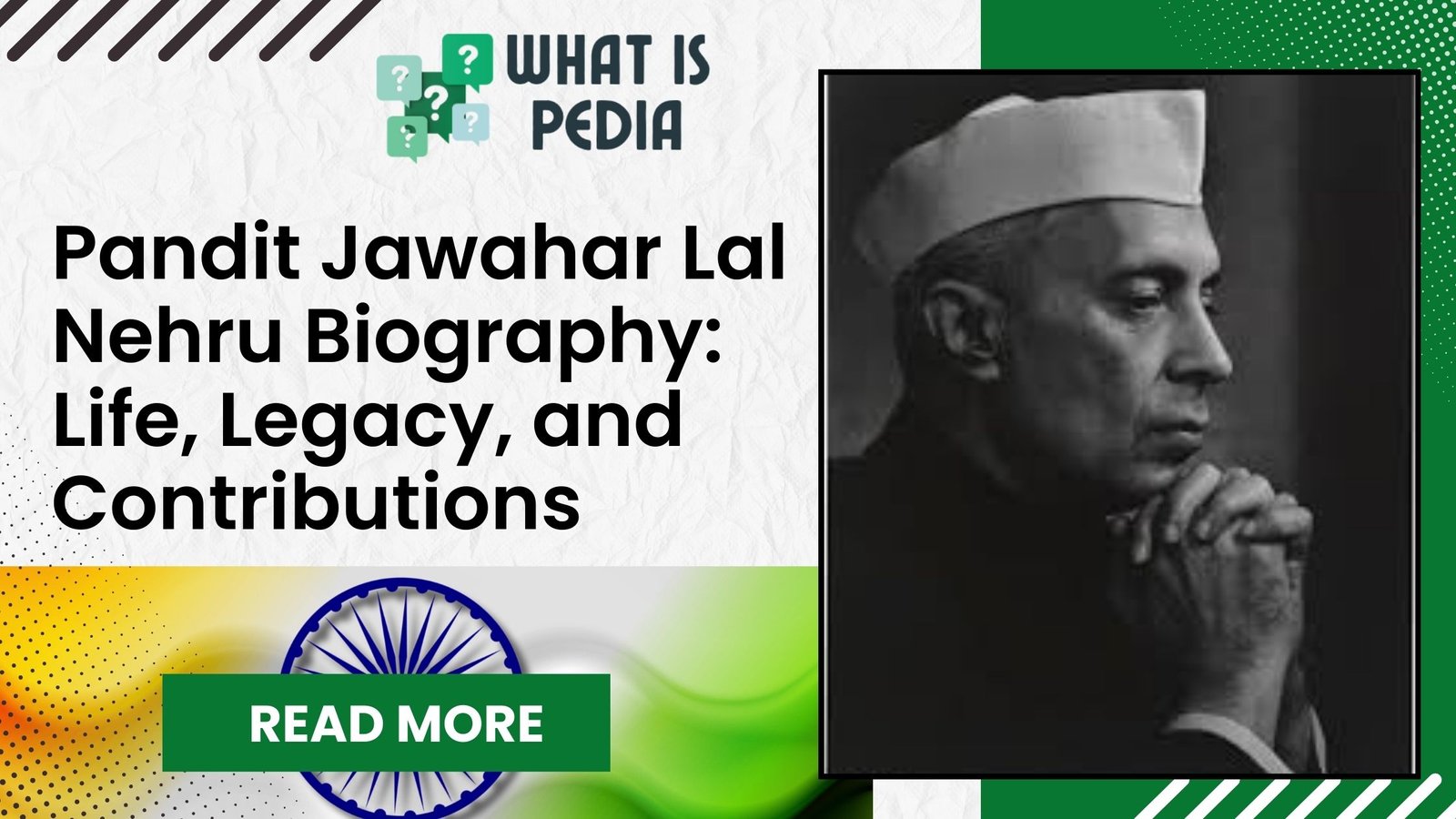🟢 1. Introduction (300-400 words)
Pandit Jawahar Lal Nehru, fondly known as Pt Nehru, was one of the most influential leaders in India’s history. Born on 14th November 1889, in Allahabad, India, Nehru played a significant role in shaping modern India. He was a key figure in the Indian independence movement and later became the first Prime Minister of India after independence in 1947. His visionary leadership, dedication to democratic values, and emphasis on scientific advancement laid the foundation for a progressive nation.
Nehru was deeply inspired by Mahatma Gandhi, which led him to join the freedom struggle. As the first prime of India, he envisioned a nation that embraced secularism, socialism, and unity. His policies and reforms transformed India into a modern state, emphasizing education, industrial growth, and technological advancements.
Nehru’s legacy continues to shape India’s political, educational, and social landscape. His love for children earned him the title of “Chacha Nehru”, and his birthday is celebrated as Children’s Day in India. Through this comprehensive Pandit Jawahar Lal Nehru biography, we will explore his life, contributions, challenges, and enduring impact on India.
📚 2. Early Life and Education (500-600 words)
Pandit Jawahar Lal Nehru was born on 14th November 1889, in Allahabad, India, into a wealthy and influential family. His father, Motilal Nehru, was a prominent lawyer and leader of the Indian National Congress, while his mother, Swarup Rani Nehru, was a homemaker.
Nehru’s privileged upbringing ensured he received the best education. He was first enrolled at Harrow School and Eton College in England, known for their academic excellence. After completing his school education, Pt Nehru went on to study at Trinity College, Cambridge, where he earned a degree in Natural Sciences.
Following his graduation, Nehru Pandit pursued law at the Inner Temple in London, one of the four prestigious Inns of Court. During his time in England, Nehru was exposed to liberal political ideologies, which sparked his interest in India’s struggle for independence.
Upon returning to India in 1912, Jawaharlal Nehru India began practicing law under the guidance of his father. However, the call for freedom was stronger than his legal career, leading him to step into the political arena.
🟠 3. Political Journey Begins (600-800 words)
The political journey of Pandit Jawahar Lal Nehru began under the influence of Mahatma Gandhi, who shaped Nehru’s ideology of non-violence and civil disobedience. Nehru joined the Indian National Congress in 1919, marking the beginning of his active participation in the freedom movement.
Key Milestones in Nehru’s Political Journey:
- Non-Cooperation Movement (1920-1922): Nehru, inspired by Gandhi’s call, actively participated in boycotting British goods and institutions.
- Civil Disobedience Movement (1930): Nehru led protests and marches, demanding complete independence from British rule.
- Quit India Movement (1942): During this movement, Nehru Nehru was imprisoned multiple times for his role in resisting British authority.
Nehru’s resilience and dedication earned him the trust of both the Congress and the people of India. His vision for a free India was rooted in secularism, democracy, and economic equality.
🔵 4. Nehru as the First Prime Minister of India (800-1000 words)
On 15th August 1947, India achieved independence, and Pandit Jawahar Lal Nehru became the first Prime Minister of India. His famous “Tryst with Destiny” speech symbolized the dawn of a new era.
Key Contributions as Prime Minister:
- Economic Development: Nehru introduced the Five-Year Plans to promote industrial growth, aiming for self-sufficiency.
- Education: He established premier institutions like IITs, IIMs, and AIIMS, revolutionizing higher education in India.
- Foreign Policy: Nehru championed the Non-Aligned Movement (NAM), maintaining India’s independence in global affairs.
Achievements and Challenges:
- Industrialization through public sector undertakings.
- Agricultural reforms under the Green Revolution.
- Challenges: Border disputes, economic disparities, and internal conflicts.
🟣 5. Personal Life and Ideologies (500-600 words)
In 1916, Pandit Jawahar Lal Nehru married Kamala Nehru, a devoted freedom fighter. They had a daughter, Indira Gandhi, who later became Prime Minister of India.
Nehru’s Ideologies:
- Secularism: Equal respect and treatment of all religions.
- Socialism: Emphasis on economic equality and social justice.
- Democracy: Strengthening democratic institutions in India.
Nehru’s love for children earned him the nickname “Chacha Nehru”, and Children’s Day is celebrated on his birthday.
🟢 6. Contributions to Modern India (600-800 words)
Pandit Jawahar Lal Nehru played a pivotal role in transforming India into a modern nation.
Economic Contributions:
- Five-Year Plans for industrial and agricultural development.
Scientific Development:
- Establishment of the Atomic Energy Commission in 1948.
Educational Reforms:
- Formation of the University Grants Commission (UGC).
Foreign Policy:
- Leadership in the Non-Aligned Movement (NAM).
🔴 7. Challenges and Criticism (300-500 words)
Despite his achievements, Pandit Jawahar Lal Nehru faced several challenges:
- Sino-Indian War (1962): Border conflict with China led to criticism of Nehru’s foreign policy.
- Economic Challenges: Critics argued that centralized planning slowed economic growth.
- Internal Differences: Diverging views within the Congress Party.
🔵 8. Last Days and Death (300-400 words)
After the 1962 Sino-Indian War, Nehru’s health began to decline. He suffered a stroke in 1963 and passed away on 27th May 1964.
His death marked the end of an era, but his legacy continued to inspire generations. Shanti Van, his memorial in New Delhi, stands as a tribute to his contributions.
🟡 9. Legacy and Impact (500-600 words)
Pandit Jawahar Lal Nehru left an indelible mark on India’s political, social, and educational landscape.
- Memorial: Shanti Van, New Delhi.
- Books by Nehru:
- Discovery of India
- Glimpses of World History
- An Autobiography
- Children’s Day: Celebrated every 14th November.
🟠 10. Conclusion (300-400 words)
Pandit Jawahar Lal Nehru was not just the first Prime Minister of India but the architect of modern India. His contributions in education, science, and social reforms shaped the nation’s future. As a visionary leader, Nehru Pandit promoted peace, progress, and prosperity.
Nehru’s legacy continues to inspire, reminding us of the values of democracy, secularism, and equality. His dream of a progressive India lives on through the institutions and policies he established.
For more inspirational biographies, read about Mahatma Gandhi’s Life and Legacy.
❓ 11. FAQs (200-300 words)
Q1: Who was Pandit Jawahar Lal Nehru?
A: Pandit Jawahar Lal Nehru was the first Prime Minister of India, a freedom fighter, and a visionary leader who played a key role in shaping modern India.
Q2: Why is Nehru called the first Prime Minister of India?
A: Nehru became the first Prime Minister of India after independence on 15th August 1947, leading the nation’s democratic journey.
Q3: What are Nehru’s contributions to India?
A: Nehru contributed to India’s development through industrialization, educational reforms, and scientific advancement.
Q4: Why is Nehru called ‘Chacha Nehru’?
A: Nehru’s love for children earned him the affectionate title of “Chacha Nehru”.
Q5: When did Jawaharlal Nehru die?
A: Nehru Pandit passed away on 27th May 1964.







